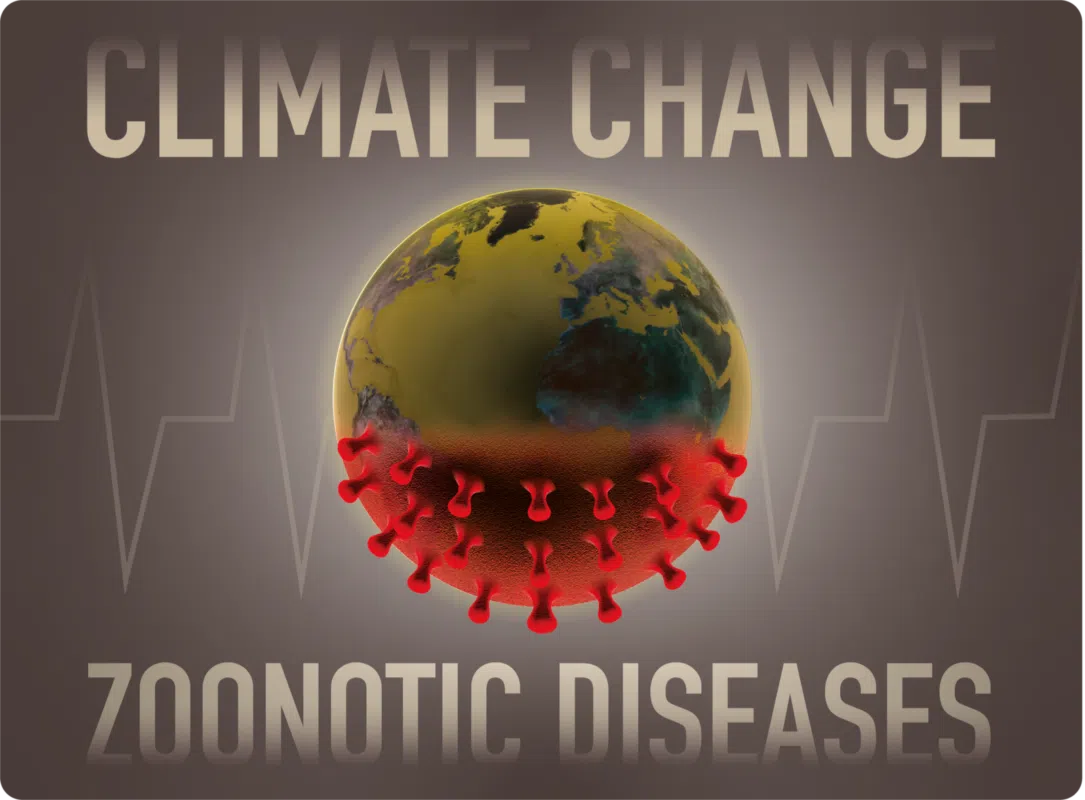The push is in folks. So, the next time you hear about a heatwave or deforestation concerns, remember that it’s not just the weather that’s heating up! Climate change may be silently setting the stage for the next blockbuster zoonotic drama. Keep an eye on those temperature trends and let’s hope for a cooler, healthier planet. More on this below. Keep reading to stay informed and entertained!
Climate change has emerged as one of the most pressing global concerns, impacting various aspects of our environment and ecosystems. While its effects on weather patterns, sea levels, and temperatures are well-documented, a recent study by experts from Ginkgo Bioworks sheds light on an alarming consequence: the substantial rise in human deaths from zoonotic diseases linked to climate change. In this article, we’ll delve into the findings of this study and explore the potential repercussions of climate change and deforestation on human health.
Understanding the Threat: Zoonotic diseases, often referred to as spillovers, are infections that jump from animals to humans. The increasing threat of these diseases stems from two major factors: climate change and deforestation. These factors lead to a closer human-animal interaction, creating an ideal breeding ground for potential pandemics.
The Four Viral Pathogens: The study conducted by Ginkgo Bioworks focused on four particularly deadly viral pathogens:
- Filoviruses: This group includes notorious viruses such as Ebola and Marburg. Their potential to cause widespread human epidemics is a significant concern.
- SARS (Covid’s Cousin): Severe Acute Respiratory Syndrome (SARS), a close relative of the COVID-19 virus, presents a persistent threat to global public health.
- Nipah Virus: Known for its severe neurological and respiratory symptoms, the Nipah virus has caused numerous outbreaks in the past.
- Machupo Virus: Responsible for Bolivian hemorrhagic fever, the Machupo virus poses a considerable risk to those exposed to it.
Historical Analysis: The research involved an in-depth analysis of historical data spanning from 1963 to 2019. During this period, over 3,000 outbreaks were scrutinized, identifying a total of 75 spillover events in 24 different countries. These outbreaks, responsible for the deaths of 50 or more people, were recorded and examined by the World Health Organization (WHO).
The Significance of Climate Change: The link between climate change and the increased occurrence of zoonotic diseases is a cause for concern. Rising temperatures and altered weather patterns can disrupt ecosystems, bringing humans into closer contact with wildlife. This increased interaction provides viruses with more opportunities to cross the species barrier.
Deforestation’s Role: Deforestation further exacerbates the problem. As forests are cleared for agriculture and urbanization, it disrupt the natural habitats of animals, pushing them closer to human settlements. This spatial convergence heightens the risk of zoonotic spillover events.
My Final Take: In the end, whether climate change is a legitimate concern or a meticulously crafted hoax, one undeniable fact prevails—our planet’s environmental health is inextricably linked to our own. The stakes are high, and the ramifications of our choices will reverberate for generations to come.










In the end, whether climate change is a legitimate concern or a meticulously crafted hoax, one undeniable fact prevails—our planet’s environmental health is inextricably linked to our own.